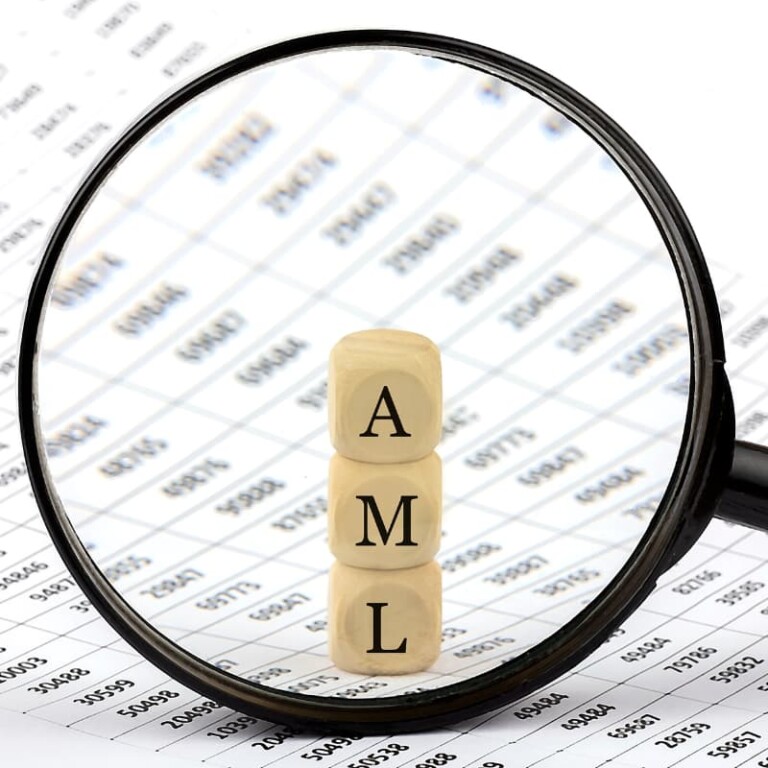What is an anti-money laundering (AML) check?
Anti-money laundering (AML) compliance is a vital part of every accountant’s role – but it can be a challenge. But what is an anti-money laundering (AML) check? Why is it so important? What are the biggest challenges, and how can you overcome them? Read on to find out…
Definition of AML Checks
The National Crime Agency estimates that around £10bn is illegally laundered in the UK each year. As accountants, we’re well-placed to help to get that figure down.
AML checks come in various forms. These due diligence checks help accountants – and those in other sectors – to both identify and report signs of financial crime.
Commonly used types of AML checks include ID verification, Know Your Customer (KYC) checks, transaction monitoring, Electoral Register ID checks and sanctions screening.
Importance of AML Checks in Business
Businesses that are covered by the Money Laundering Regulations must conduct AML checks as standard. This includes businesses that deal with money or investments, such as those dealing in high-value products (like art), accountants, estate agents, money services, and trust or company service providers.
AML compliance is necessary to both comply with the Money Laundering Regulations, and to protect the business against financial fraud. What’s more, a failure to comply with AML legislation could result in reputational damage, in fines, and even, in some cases, in criminal prosecution. For your clients, this could mean the end of their business. For you, it could mean the same.
Steps Involved in Conducting an AML Check
The risks and benefits of AML checks are clear – but what is the process involved?
In most cases, it will start with customer due diligence: gathering information about the individual concerned to confirm their identity, as well as the purpose and nature of the business relationship.
A risk assessment will be conducted after this initial information has been gathered. Based on factors like the nature of their business, their geographical location, any political involvement and their transaction behaviour, you will be able to determine the likely risk of terrorist financing or money laundering.
Should a customer be deemed high-risk, enhanced due diligence may well be needed. This more detailed examination may further scrutinise their intent, their background, their transactions and the sources of their funds to further establish risk levels.
The AML check process does not end once a customer has been onboarded. Customer information should be kept up-to-date and their transactions monitored for any unusual or suspicious transaction patterns. In this way, their risk levels can be reviewed on a regular basis.
Common Challenges in AML Compliance
As an accountant, there are a number of AML compliance challenges you could face.
The first is updating customer due diligence. This must be done periodically throughout the client relationship, not just during the onboarding process.
Some firms fail to assess client risk accurately, focusing their attention more on identity checks. Others – maybe due to a lack of time or as a result of the need for greater training – do not necessarily perform customer due diligence checks on new clients, meaning that some money laundering activity could slip through the net.
A failure to obtain criminal record checks on a client’s beneficial owners, officers and managers (BOOMs) can also set accountancy firms back.
Other challenges include the increasingly advanced methods used by criminals to disguise money, the flagging of some transactions as false positives, and the fact that the world is now so globalised and digitalised that transactions have become more complex, making suspicious activity more difficult to spot.
Tips for overcoming these challenges
Many of these challenges can be overcome with the right training – and the right AML software. Policies and processes should be put in place both to update customer due diligence periodically, and ensure that CDD checks are completed for all new clients.
The Money Laundering Regulations 2017 mandate that client-specific risk assessments should be conducted – and also that the IAB should approve any BOOMs of an IAB-supervised firm or practice.
One major issue when it comes to AML compliance is a lack of resources and a great deal of complexity: these things can take a significant amount of time. Complex business structures and accounts can also be tricky to navigate. That’s why some accountancy practices choose to outsource their AML processes, while others use AML software to both speed up the process and make it easier to manage.
Why Join ICPA for AML Support?
AML compliance can be challenging – but it’s far easier with professional support. ICPA members have access to AMLCC – an all-in-one, online compliance, risk management and educational solution that fulfils all AML requirements. We are also considering offering access to tools to complete ID Verification (IDV) as part of our membership package: we’d love to hear your thoughts on this, let us know at enquiries@icpa.org.uk!
Further ICPA member benefits include access to a wealth of guides and resources covering a range of topics including AML, as well as professionally-staffed helplines to help with any client queries you may have.
To learn more about how the ICPA can help with your practice’s AML compliance, see our full list of member benefits here or get in touch.
FAQs on AML Checks
How do AML checks differ from KYC (Know Your Customer) processes?
AML checks are significantly more detailed than KYC processes – but include KYC as well as ID verification, transaction monitoring, Electoral Register ID checks and sanctions screening.
What are the penalties for failing to comply with AML regulations?
Failing to comply with AML legislation could result in reputational damage, fines, and even, in some cases, criminal prosecution.
Which types of businesses are most affected by AML regulations?
AML checks are required by businesses covered by the Money Laundering Regulations 2017. These include businesses that deal with money or investments, such as those dealing in high-value products (like art), accountants, estate agents, money services, and trust or company service providers.
How can technology aid in conducting AML checks?
AML software can improve accuracy, reduce the amount of time AML checks take, and automatically flag up any potential suspicious activity.
What role does due diligence play in AML checks?
Customer due diligence is generally the first step in a practice’s AML process – and should a customer be deemed high risk, enhanced CDD may also be required. Due diligence checks should also be conducted periodically throughout the client relationship, not just during the onboarding process.
What are the consequences of inadequate AML checks?
Inadequate AML checks may result in your practice failing to pick up on suspicious activity from your clients. AML processes are required as per the Money Laundering Regulations 2017 – and also help to protect your practice from financial fraud. A failure to comply could result in fines, reputational damage and perhaps even criminal prosecution.
Get the latest news direct to your inbox
Sign up to our mailing list to receive weekly bulletins on all of the latest accounting news.
"*" indicates required fields





